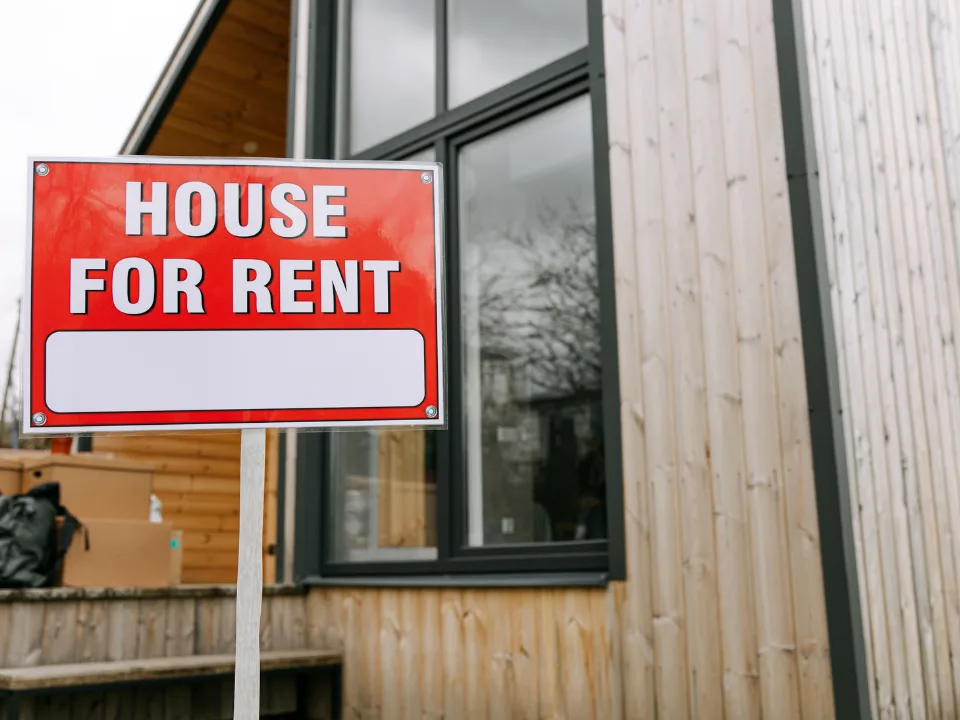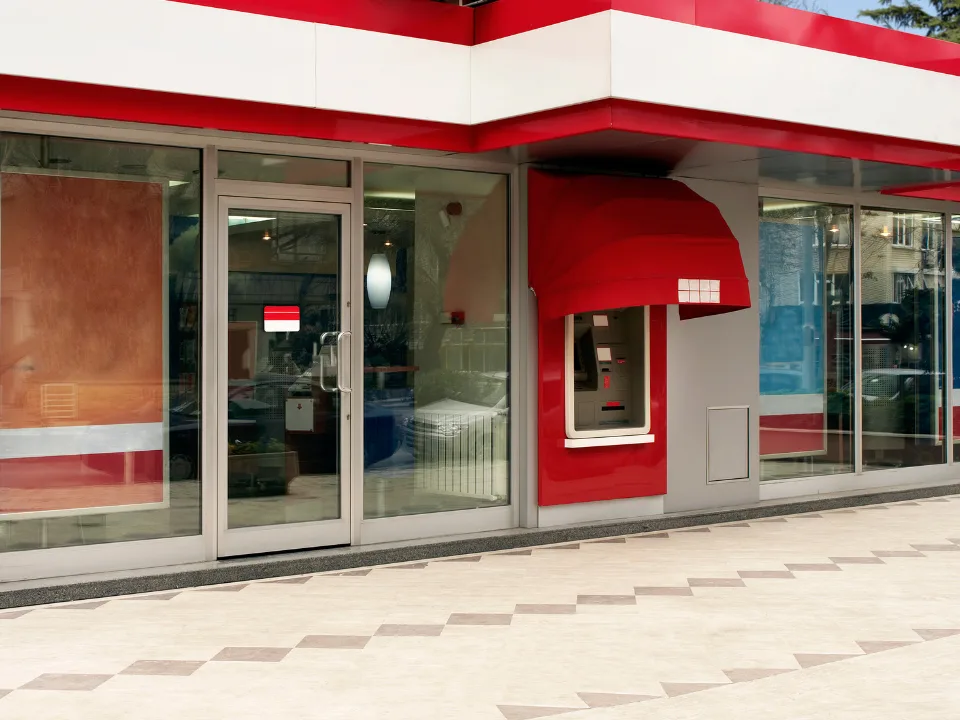Nearshoring Boosts Industrial Real Estate Investment in Mexico Border States
Some companies are shifting production and equipment to Mexico in pursuit of a manufacturing hub closer to the U.S.
Good morning. Investors are investing heavily in industrial real estate in Mexico and US border states due to nearshoring. The Fed’s aggressive interest rate increase has made traditional options less appealing, leading to a rise in private and local lending.
Meanwhile, Amazon (AMZN) has temporarily stopped expanding its physical Amazon Fresh grocery stores and is closing some locations as it looks to reevaluate, just three years after launching the idea.
⚡ Want to share the CRE Daily? Click here to forward this email.
📖 Read about why investors are ‘risk on’ for 2023. According to the latest global real assets report from Pitchbook, LP commitments to opportunistic and value-add infrastructure funds are much higher than their 5- and 10-year averages.
🎧 Listen to why RXR Realty, a major NYC developer, is handing back the keys for nearly 10% of its office portfolio. This week’s episode of The TreppWire Podcast dives into the details, along with some good news for multifamily investors.
PROPERTY REPORT
Mexican Border Cities Experience Warehouse Boom as Manufacturing Relocates

Industrial real estate investors are placing their bets on Mexico and US border towns being the biggest beneficiaries of seismic shifts in global supply chains.
The new normal: Before the pandemic, the US relied heavily on overseas (read: Chinese) supply chains for manufacturing and production. Thanks to COVID, many American companies ‘nearshored’ production to Mexico, seeking a manufacturing hub closer to home—and a shorter, more dependable supply chain.
Business is booming: During the first 9 months of 2022, foreign investment in Mexico added up to $32.1B—the highest level since 2013. And in January, US and Canadian leaders met at the North American Leaders’ Summit in Mexico City, where they agreed to beef up regional supply chains. The economic impact on Mexican cities has been significant, to say the least.
Always buy low: The largest industrial landlord in the world, Prologis (PLD), owns 44 MSF of industrial space in Mexico, and says demand is increasing rapidly. Morgan Stanley (MS), TPG (TPG), and CBRE (CBRE) are investing in cities near the border, like El Paso and Laredo, TX. While some goods can be manufactured reliably in Mexico, many companies still require a more skilled labor force for final assembly.
➥ THE TAKEAWAY
The new favorite: Heightened tensions between the US and China, the war in Ukraine, and other geopolitical issues have pushed Mexico to the forefront of global manufacturing. Today, the well-known risks associated with investing in Mexican infrastructure seem minimal compared to what’s happening in the rest of the world.
BRIDGE THE GAP
Sky-High Rates Pave Way For Private & Local Lenders to Shine

As rates remain high, CRE owners refuse to transact unless they absolutely must. According to a new report, CBRE (CBRE) is seeing an uptick in activity from private capital and regional & local banks as pricing stays frozen.
Let the cat out of the bag: Unsurprisingly, debt yields and cap rates have moved almost in unison with interest rate increases, with loan-to-value ratios remaining low in H2 2022. To fill the gap between equity and senior debt, investors are strategically deploying mezzanine debt and preferred equity to earn higher yields.
Stay tuned: Rates have run up nearly 400 basis points from their lows in Spring 2022. Given the rapid rise over such a short time, we’d expect to see more distress than we actually have. According to Yardi Matrix, the distress will largely depend on how long rates remain at these levels. Until then, sellers will only transact if they really need to.
Opportunity knocks: With CRE maturities coming up over the next 6–12 months, private capital as well as regional & local banks are stepping up to bat. While these lenders usually find it difficult to compete, they offer advantages like the certainty of execution and flexible lending from their own balance sheets.
Band-Aid solution: Instead of making hasty moves, some borrowers are playing the waiting game. Given the shaky lending environment, short-term bridge financing is becoming popular again. Investors are using bridge loans to punt on the debt markets, planning to refinance in 12–18 months. They must know something we don’t!
➥ THE TAKEAWAY
Light at the end of the tunnel: The Fed has signaled that rate hikes could be coming to an end this year, allowing borrowers to make better predictions about future refinancing risk. Until then, investors need to adapt to the new environment—more equity is needed to get deals done.
SWING AND A MISS
Amazon is Throwing in The Towel on Grocery Stores

Just three years into rolling out its brick-and-mortar grocery concept, Amazon Fresh is pausing new growth and closing locations as it looks to rethink its grocery strategy.
The hurt locker: During Amazon’s Q4 earnings call, the company announced a $720M impairment charge due to costs related to closing Fresh and Go stores, including existing leases. Despite the pause, 20 Amazon Fresh leases are still on hold in CT, NY, NJ, and PA, leaving investors curious about future developments.
Expectation vs. reality: Back in 2017, Amazon acquired Whole Foods, and many analysts predicted it would dominate grocery sales. As it turns out, Fresh doesn’t sell nearly as many groceries as its competitors. For example, one Amazon Fresh location in Philly sees about $200K in weekly sales, but nearby grocery stores earn $600K–$1M. Unlike its competitors, Fresh doesn’t offer “an experience” when customers walk through the doors.
➥ THE TAKEAWAY
Back to the drawing board: Amazon may be putting its grocery plans on hold, but it’s not giving up. Before resuming expansion plans, the company is going back to the drawing board, tinkering its way to a new format that resonates more with shoppers. Once they find it, expect to see v2 of Amazon’s grocery store concept asap.
📰 Editors’ Picks
-
Survival of the fittest: DC’s Class A office occupancy went up by 756 KSF in 2022, thanks to law firms gobbling up available space.
-
The airline model: AMC (AMC) will adjust ticket prices during peak shows—prime middle seats will come at a premium, while neck-breaking front-row seats will be discounted.
-
Out of options: Quebec land shortages intensify as an influx of workers from a new contract with Tesla (TSLA) ramps up materials mining for EV batteries.
-
Tick, tock: With a $175B time bomb of distressed real estate credit, rising interest rates, and low office occupancy rates, a black swan event could be brewing in global real estate.
-
Teach a man how to fish: Knoxville Real Estate Professionals Inc., a real estate brokerage in Knoxville, TN, is doubling down on educational resources for homebuyers.
-
Bagholders: Now that the housing market has slowed down, home-buying companies like Ribbon Home are stuck holding hundreds of homes worth less than what they paid for them.
-
Need a little controversy: United American Land is pushing for a 100-unit apartment at 277 Canal St in SoHo, which was recently rezoned for housing against many residents’ wishes.
-
Remote work for who? According to swipe card data from Kastle Systems, Dallas and Austin lead the nation in no. of employees back in offices at 60% and 68%, respectively.
-
One man’s pain, another’s pleasure: Rescue capital, typically mezzanine debt or preferred equity for struggling developers, is where the returns are right now in the multifamily sector.
-
Another one bites the dust: Binance will immediately suspend USD deposits and withdrawals. The world’s biggest crypto brokerage didn’t provide a reason for doing so.
💼 Talent Collective
In partnership with Bullpen
Looking for a new role? CRE Daily has partnered with Bullpen to bring hand-selected, CRE freelance jobs to our readers. Join today for access to the below roles, as well as several other freelance openings.
-
Associate, Development
💰 Hourly (Remote) ❗️ Ground-up Multifamily
-
Controller/Accountant
💰 Hourly (Remote) 📍 Retail & Office in Dallas/Fort Worth
-
Marketing Specialist
💰 Hourly (Remote) ❗️ Multifamily and Student Housing emphasis
Looking to hire? Connect with Bullpen
🤝 Deals & Dealmakers
-
Bigger data: Vantage Data Centers is building a 134-acre campus in Loudoun County, VA, on land that it purchased for $180M.
-
Is it summer already? 29 luxury Manhattan apartments went under contract last week, the highest number since mid-October 2022.
-
Making bank: An affiliate of Related Cos. secured $385M in financing from Bank of America (BAC) for 710 Broadway in Downtown Santa Monica.
-
Buck wild: A JV with The John Buck Company acquired a downtown Miami development site for $39.5M, where it’s planning a mixed-use project.
-
Not so standard: Hotel operator Standard International is buying Sixty Soho at 60 Thompson St. from the Pomeranc family’s Sixty Collective.
-
6 years later: Northwind Group is giving a $313M construction loan to Bizzi & Partners to finalize a 273-unit luxury condo project in Manhattan’s FiDi.
-
Foot on the gas: Northwestern Mutual (NWE) is planning to expand its 2 MSF HQ in Milwaukee with a $500M investment.
-
The show goes on: Unibail-Rodamco-Westfield sold its Westfield North County mall in San Diego, continuing the disposition of its US properties.
-
Wake up & smell the coffee: Westrock Coffee & Tempus Realty Partners are planning a 530 KSF distribution center in Conway, AR.
-
Houston is a beach town? RREAF Holdings and Innisfree Hotels are partnering to build a 14-story hotel in Houston for $110M.
📈 Chart of the Day
Home equity lines of credit (HELOCs) are becoming popular among homeowners as interest rates rise and refinancing becomes less appealing. Homeowners can preserve their low first mortgage rate while tapping into equity for cash needs. However, borrowers need high credit scores to qualify for a HELOC as banks hold these loans on their balance sheets.
😎 Offering-MEME-Orandum
— Not Jerome Powell (@alifarhat79)
Feb 7, 2023
What did you think of today’s newsletter? |
You share. We listen. As always, send us feedback at [email protected].


















